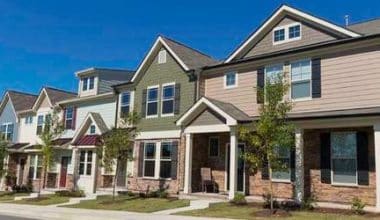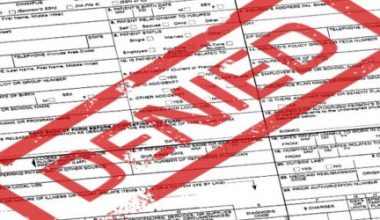Was there a single aspect that drew you to your home? Perhaps you couldn’t pass up the amazing city views or the open-plan kitchen with all of the additions. In a three-car garage with a comprehensive workshop, there was also plenty of space for your historic automobiles.
Whatever you like about your current home, it is not the only purpose to select insurance with caution. Because your home is one of your greatest and most important investments, it makes sense to get the best home (homeowners) insurance available. Naturally, you’ll want the best price, but you’ll also want the correct combination of coverage from a company that can afford to pay your claim if calamity hits. Dependable customer service is also a benefit. What does home insurance cover and how do you consider all of these aspects while deciding on the best insurance companies and policy coverage for your home?
What is Home Insurance (Homeowners Insurance)?
A home insurance policy, often known as homeowners insurance, is insurance that protects you financially if your home is damaged by fire, someone steals your things, or another disaster occurs. Mortgage lenders typically need homeowners insurance.
What is the purpose of having Home (homeowners) Insurance?
- Home insurance safeguards one of your most valuable possessions.
- A homeowners insurance policy protects you against accidents that occur in your home or on your property.
- The majority of mortgage lenders need homeowners insurance.
Who should have Home (homeowners) insurance?
- Purchasers of their first home
- Current property homeowners
Types Of Home Insurance Cover
Generally, there are three types of home insurance cover. They are listed below;
1. Building Insurance
2. Content Insurance
3. Combined insurance
#1. Building Insurance
Building insurance is a type of home insurance cover that protects the structure of your building (the walls, roof, floors, and extensions) as well as its fixtures from damage caused by flood, fire, subsidence, storm, or vandalism (built-in wardrobes, bathroom suites, and fitted kitchens).
fixtures from damage caused by flood, fire, subsidence, storm, or vandalism (built-in wardrobes,
It also covers damage caused by leaking pipes or broken electronics, as well as criminal or accidental damage, and will probably rebuild if the need arises. Also, Building insurance protects your property from unforeseen circumstances. Building insurance basically cover for damages caused by fire, flood, storms, subsidence or heave, burst or frozen pipes
#2. Content Insurance
The building insurance covers every aspect of the building but not your belongings. To insure your belongings, you need another home insurance policy known as content insurance. Although content insurance may limit the amount to pay for items, you can outsmart this buy, insuring your most valuable assets.
#3. Combined Insurance
This is the combination of building insurance and content insurance. Mostly, your insurer will offer to insure both. Although getting both seem cheaper with some firms, it is still advisable to compare quotes before settling for one.
What does a Home Insurance Policy Cover?
The best location to evaluate your coverages is in your home insurance policy. Here are a few common items that home insurance cover:
#1. Property Damages
Most insurance cover damage to your home and any permanent constructions on your property for the following reasons:
- Fire
- Wind
- Hail
- Water harm (unless excluded by your policy)
#2. Personal Property
Protects items that have been destroyed or stolen, such as:
- Furniture
- Appliances
- Clothing
- Dishes
#3. Jewelry
Limited coverage for jewelry stolen from your home (often between $500 and $2,000). You may require additional coverage for certain items in your collection, such as:
- Rings for engagement
- Bands for weddings
- Bracelets made of diamonds
What Additional Risks might a Home Insurance Policy Cover?
#1. Individual Liability
Could assist with medical expenditures or property damage caused by you or members of your family, including pets, to others. Personal liability may also assist with legal costs in the event of a lawsuit.
Examples include a guest tripping on loose flooring in your home and injuring themselves, or your youngster inadvertently throwing a ball through a neighbor’s window and breaking an expensive vase.
#2. Medical Expenses
Covers medical expenses for minor injuries sustained by people who do not live with you but are injured on your property.
On a rainy day, for example, a guest stumbles down your steps and gets an injury.
#3. Additional Costs
Coverage for any additional expenditures you may incur as a result of a covered loss.
For example, suppose a fire renders your home uninhabitable, necessitating a temporary relocation.
What is the Cost of Home (Homeowners) insurance?
According to Businessyield rate analysis, the average cost of home (homeowners) insurance in the United States is $1,585 per year. This cost, however, varies depending on where you reside, the size of your home, and the amount of coverage you require.
What Standard Home Insurance Policy does not Cover
The following are some examples of things that most basic home insurance policies may not cover:
- Earthquakes
- Flooding as a result of natural rising water
- Termite and insect damage, rats, mold, and normal wear and tear.
- Nuclear danger
If you reside in a high-risk location for these types of losses, you may be able to tailor your home insurance policy to acquire the coverage you require.
Read Also: List of Fortune 1000 Companies in 2021, Updated!!! (How to Invest Guide)
Comparing Home (Homeowners) Insurance
#1. Determine how much coverage you require:
Finding the best homeowners insurance company for you begins with ensuring that you are shopping for the appropriate coverage. A normal policy protects your home and other structures, but the quantity of coverage you require is determined by the cost of rebuilding your home.
You’ll also have several alternatives to think about, such as the amount of your insurance deductible (the amount you pay out of cash in the event of a claim) and whether you need additional insurance for costly objects. You may also want to consider home insurance policy upgrades to cover earthquake damage or to ensure that after a loss, you can replace old belongings with new ones rather than being paid for their depreciated value.
So, you can ensure that each policy you’re considering provides the same amount of coverage by determining what you need before comparing home insurance companies. You can also eliminate businesses that do not provide the solutions you require.
#2. Compare home insurance quotes:
Once you’ve determined your coverage requirements, you can begin shopping for homeowners insurance. You should compare home insurance quotes from at least three different companies to ensure you’re getting the best deal possible.
According to a Businessyield analysis, homeowners insurance will cost an average of $132 per month in 2023. However, rates can vary greatly because no two houses are alike, and each insurer has its formula for calculating premiums and discounts.
You can compare home insurance quotes online or over the phone, or you can work with an insurance agent or broker to find the best deal. Whatever path you take, make sure to compare policies with comparable coverage and deductibles.
Also, be aware that a homeowners insurance quote is only an estimate. Your price may change if an insurance company checks out your house and determines you need a different amount of coverage.
#3. Research home insurance discounts:
Most companies offer a standard set of home insurance discounts, such as savings for having multiple policies with the same insurer (for example, both home and auto insurance), installing safety and security devices in your home, and avoiding claims for consecutive years.
Beyond those, you will see differences in both the number and type of discounts available. Matching the discounts your home is eligible to receive will ensure that you not only get the policy you want but also benefit from investments you have made in your home.
#4. Examine customer contentment and complaints:
If you choose a home insurance company that has a reputation for making its customers happy, you can be more confident that you will have a positive experience.
To see whether prior customers have been satisfied, you can look at research on homeowners insurance and property claims satisfaction from J.D. Power, which surveys thousands of homeowners annually. Consumer Reports also polls its subscribers on their experiences with homeowners insurance, but comparing the results requires a paid membership.
Another source of information regarding how home insurance companies have performed is the NAIC website. You may learn how many complaints were filed against an insurer with state regulators, what the complaints were about, and whether there were more complaints than expected for a company of its size.
#5. Think about financial strength:
You’ll want to obtain home insurance from a reputable company that has adequate cash on hand to cover claims. One approach to determine whether an insurer satisfies that requirement is to look at its financial strength. A rating organization, such as AM Best, can help you determine a company’s financial strength.
BusinessYield normally recommends looking at home insurance companies with A- or higher ratings. AM Best believes that any company with an AM Best rating of B+ or better has a “good” ability to meet its obligations. Home insurance companies with ratings lower than that may not be as safe a bet and frequently have greater complaint rates relative to their size.
Reviews of the Best Home (Homeowners) Insurance Companies
#1. Amica
5.0 Rating for Businessyield
Best for: Those looking for excellent customer service and a wide range of coverage alternatives.
Policies are available in all states except Alaska and Hawaii, as well as Washington, D.C.
To obtain a quote, go online or call.
Pros: Amica offers a wide range of add-on coverage options, as well as convenient online claim filing and tracking.
Cons: Amica provides fewer discounts on home insurance than many other carriers.
Amica home insurance provides the basic coverage you’d expect, as well as excellent customer service. Those wanting more coverage can choose from the Platinum Choice plan, which includes benefits such as longer dwelling coverage, higher liability limits, and coverage for damage caused by clogged drains or overflowing sump pumps.
Contractor Connection is a program offered by Amica that connects customers with licensed and insured contractors. Discounts are also available from the company for:
- Keeping a policy with the same insurer for at least two years.
- Insuring a newly constructed or refurbished home.
- Bills are received electronically and paid automatically each month.
#2. Chubb
5.0 Rating for Businessyield
Best for: Affluent homeowners seeking high coverage limits and a plethora of benefits.
Policies are offered in all 50 states as well as Washington, D.C.
To obtain a quote, contact an independent insurance agent.
Pros: Chubb’s homeowners’ plans offer various benefits that other providers charge extra for. It also provides a large number of discounts.
Cons: Chubb is more expensive than other insurers and does not provide online quotes to the majority of customers.
Overview of the company: Chubb caters to the owners of luxury properties, with much of its experience geared toward well-to-do consumers. It provides a wide range of coverage options, including unusual ones like HomeScan, which helps identify concerns with your home that need to be addressed before they cause damage.
As part of its normal policy, Chubb also provides extended replacement costs for homes and replacement value for contents, which is an unusual benefit for consumers. This implies that if rebuilding your home after a covered disaster costs more than expected, Chubb insurance will pay out more than your set dwelling limit to assist cover the expense. It also means you’ll earn enough money to replace your damaged items with brand-new ones, rather than only their depreciated value.
According to three years of NAIC statistics, Chubb has far fewer complaints to state regulators than would be expected for a company of its size.
#3. Hippo
5.0 Rating for Businessyield
Best for: Homeowners seeking quick internet prices and cutting-edge service.
Alabama, Arizona, Arkansas, California, Colorado, Connecticut, Delaware, Florida, Georgia, Illinois, Indiana, Kansas, Kentucky, Maryland, Maine, Michigan, Minnesota, Missouri, Mississippi, Nebraska, New Hampshire, New Jersey, New Mexico, Nevada, Ohio, Oregon, Pennsylvania, Rhode Island, South Carolina, Tennessee, Texas, Utah, Virginia, Vermont, Washington, Wisconsin, and West Virginia all have policies available.
To obtain a quote, go online or call.
Pros: Hippo provides very quick quotations as well as a vast choice of supplemental coverage options.
Cons: Its policies aren’t available in all states, and its emphasis on technology isn’t for everyone.
Hippo, which was founded in 2015, focuses on technology and customer experience, featuring a 60-second “instant quote” tool for quick price comparison. Some of the extras that come with Hippo insurance, including a smart home monitoring system and virtual connections to home maintenance consultants, demonstrate Hippo’s focus.
Several of Hippo’s deals are centered on home security. Fire extinguishers and living in a gated community will help consumers save money on their insurance costs.
#4. Kin
5.0 Rating for Businessyield
Best for: Homeowners in high-risk states.
Florida and Louisiana have policies available.
To obtain a quote, go online or call.
Pros: Quotes are easy to obtain online, and insurance includes coverage that some other home insurance companies charge extra for. You can earn a deductible reduction if you utilize one of Kin’s recommended contractors following a claim.
Cons: It is only available in two states, and there is no bundle discount. Kin charges an additional fee for pet liability, which is often included in a normal homeowners policy.
Overview of the company: Kin, a newer company in the home insurance industry, was launched in 2016. Its ordinary home insurance covers personal things on a replacement cost basis, which means that if yours are stolen or damaged in an insured disaster, the company will pay you enough to replace them.
Depending on where you reside, you may be able to add coverage for identity theft, water backup damage, and expensive items such as jewelry. Installing security and fire alarms, as well as taking efforts to protect your home from wind, can help you save money on your insurance policy.
#5. Nationwide
5.0 Rating for Businessyield
Best for: Homeowners looking for excellent customer service and coverage that other home insurance companies charge a premium for.
Policies are available in all states except Alaska, Hawaii, Louisiana, and Massachusetts, as well as Washington, D.C.
Quotes can be obtained online (except in Florida) or through an agent.
Pros: Nationwide receives fewer customer complaints than one might expect from a company of its size and provides numerous discounts.
Cons: Nationwide does not provide coverage for mobile or prefabricated homes.
Overview of the company: Nationwide distinguishes itself by including ordinance or law insurance in its standard home insurance policy. This means that if you experience a covered loss and need to renovate your home to meet current construction rules, your insurance company may cover the expenditures.
Nationwide also receives top rankings for its customer service. Policyholders can submit and track claims online or over the phone, and the company’s website features a wide collection of consumer-focused content.
#6. NJM
5.0 Rating for Businessyield
Best for: Homeowners looking for comprehensive coverage that comes as standard.
Connecticut, Maryland, New Jersey, Ohio, and Pennsylvania all have policies available.
To obtain a quote, go online or call.
Pros: NJM’s policies include features that other home insurance companies charge extra for, as well as numerous opportunities to tailor your coverage.
Cons: NJM exclusively sells policies in five states.
NJM Insurance services only five states, but if you live in one of them, you’ll find generous homeowners insurance that contains various types of coverage that other insurers charge extra for. For example, if your home is destroyed, the company’s guaranteed replacement cost coverage will pay to reconstruct it, even if the damage exceeds your dwelling limit.
NJM provides a streamlined online experience that allows you to manage the claims process with ease. Furthermore, nonsmokers and persons over the age of 65 receive premium discounts.
According to the NAIC, complaints against NJM’s homeowners’ insurance are lower than expected for a company of its size.
#7. Country Financial
4.5 Rating for Businessyield
Best for: Those who want to discuss coverage with a live person.
Alabama, Alaska, Arizona, Colorado, Georgia, Idaho, Illinois, Indiana, Iowa, Kansas, Minnesota, Missouri, Nevada, North Dakota, Oklahoma, Oregon, Tennessee, Washington, and Wisconsin all have policies available.
The phone is the best way to acquire a quote.
Pros: The company receives fewer customer complaints than would be expected for a company of its size and provides a diverse range of coverage alternatives.
Cons: You can’t acquire a quote online, and policies aren’t accessible in all states.
Country Financial insures household catastrophes such as countertop burns or spilled paint. Country Financial provides guaranteed replacement cost coverage in most states, which pays the cost of typical new construction materials and labor if you need to rebuild your home, with no limits.
Customers can earn safety-related discounts on things like:
- Newer electrical wiring.
- A reliable source of heat.
- Automatic sprinkler systems and smoke detectors
According to the NAIC, Country Financial receives fewer complaints about its home insurance than expected given its size.
#8. The Hanover
4.5 Businessyield Rating
Best for: Those who want to customize their policy in a variety of ways.
Arkansas, Connecticut, Georgia, Illinois, Indiana, Louisiana, Maine, Massachusetts, Michigan, New Hampshire, New Jersey, New York, Ohio, Oklahoma, Pennsylvania, Tennessee, Vermont, Virginia, and Wisconsin all have policies available.
To obtain a quote, contact an agent.
Pros: The Hanover offers numerous ways to tailor your coverage and receives fewer consumer complaints than one would expect from a company of its size.
Cons: Manufactured houses and specific dog breeds are not insured. There is no option for an online quote.
Overview of the company: The Hanover provides several options for customizing your homeowners’ policy, such as coverage for water backup damage or expenses connected with bringing your home up to current construction requirements after a disaster. You can also choose guaranteed replacement cost coverage, which ensures that you’ll have enough money to rebuild even if expenses exceed expectations.
If you purchase the company’s Prestige policy, which is targeted for higher-value properties, you will not be required to pay a deductible on claims over $50,000.
#9. State Farm
4.5 Businessyield Rating
People who prefer to work with a local agency are the best fit.
Policies are in all 50 states as well as Washington, D.C.
You can acquire a quote online, over the phone, or through an agent.
Pros: The website is easy to use, but individuals who require more assistance can receive individualized treatment from an agent.
Cons: There are few discounts available.
Company overview: State Farm provides many upgrades to the regular homeowners’ policy, such as its “enhanced dwelling limit” add-on, which is free and automatically expands the replacement cost coverage up to 20% as long as the home has been insured up to its estimated replacement cost. A range of extra choices can be added to a homeowners policy for an additional fee.
State Farm has also received favorable ratings from the NAIC, reporting fewer consumer complaints than would be expected given the company’s size.
Its website has an easy-to-use interface and quick access to file claims, get a quote, and learn more about your policy.
#9. Travelers
4.5 Businessyield Rating
Best for: Homeowners seeking a company with an easy-to-use website and a wide range of coverage options.
Alabama, Arizona, Arkansas, California, Colorado, Connecticut, Florida, Georgia, Idaho, Illinois, Indiana, Iowa, Kansas, Kentucky, Louisiana, Maryland, Massachusetts, Michigan, Minnesota, Mississippi, Missouri, Montana, Nebraska, Nevada, New Jersey, New Mexico, New York, North Dakota, Ohio, Oklahoma, Oregon, Pennsylvania, South Carolina, South Dakota, Tennessee, Texas, Utah, Virginia, Washington, Wisconsin, and Wyoming all have policies available.
You can acquire a quote online, over the phone, or through an agent.
Pros: The website and app provide handy features, and there are numerous coverage alternatives.
Cons: Coverage is not available for mobile or prefabricated houses.
Company overview: Travelers’ Green Home Coverage, which is optional, helps cover the additional expenses of choosing environmentally friendly construction materials when rebuilding after a covered claim. Continuing on that theme, Travelers offers a discount to customers whose homes have been certified as “green” by the Leadership in Energy and Environmental Design, or LEED, group.
Travelers’ website enables simple claim submission and tracking, as well as educational information on basic homeowners insurance topics.
#10. USAA
4.5 Businessyield Rating
Ideal for: Current and past military personnel.
Policies are in all 50 states as well as Washington, D.C.
To obtain a quote, go online or call.
Pros: According to Businessyield’s analysis, policies feature military perks and cost less than the national average.
Cons: Only members of the military, veterans, and their families are eligible.
Overview of the company: USAA is exclusively available to active military members, veterans, and their families. For individuals who qualify, USAA offers several standard benefits that many other insurers do not:
- In most jurisdictions, identity theft coverage (with a $5,000 limit) is available to assist with expenditures if you are the victim of identity fraud.
- Military uniform coverage for active duty or deployed personnel that gives full payment without a deductible if a uniform is damaged or stolen during a covered event.
- Replacement cost coverage, which pays the whole cost of replacing items rather than only the depreciated value.
According to the NAIC, USAA has received fewer complaints about home insurance from state regulators than would be expected for a company of its size.
What is the role of an insurance agent in home insurance?
An insurance agent can play a crucial role in helping you find the right home insurance policy to meet your specific needs. They can provide you with information and advice, help you compare different policies and rates, and guide you through the claims process if necessary. In short, an insurance agent can be your trusted advisor when it comes to home insurance.
What is the process for making changes to my home insurance policy?
The process for making changes to your home insurance policy can vary depending on the specific policy and insurance company. However, generally speaking, you can contact your insurance agent or insurance company to make any necessary changes. They will then review your request and make the appropriate changes to your policy.
How does home insurance protect me in the event of theft?
Home insurance can provide financial protection in the event of theft of your personal property. Most home insurance policies include coverage for theft, so if someone breaks into your home and steals your valuables, you can file a claim with your insurance company to recoup some of the losses. Depending on your specific policy, you may also be covered for theft that occurs outside of your home, such as from your car or while you’re traveling.
What is a liability coverage in home insurance?
Liability coverage in home insurance provides financial protection in the event that you are held legally responsible for injuring someone or damaging their property. For example, if a guest slips and falls in your home and sustains an injury, your liability coverage would help cover the cost of their medical bills and any lawsuits that may arise. Liability coverage is an important part of home insurance, as it helps protect you against potentially significant financial losses.
How does home insurance protect me in the event of a natural disaster?
Home insurance can provide financial protection in the event of a natural disaster, such as a hurricane, tornado, or earthquake. Depending on your specific policy and location, your home insurance may cover the cost of repairing or rebuilding your home if it is damaged or destroyed by a natural disaster. It is important to understand the specific coverage included in your policy and make sure you have the right level of protection to meet your needs.
What is a deductible in home insurance?
A deductible is the amount you must pay out of pocket before your insurance coverage kicks in. In other words, if you have a $1,000 deductible, you would be responsible for paying the first $1,000 of any covered losses. Choosing a higher deductible can help lower your home insurance premium, but it also means you will have to pay more out of pocket in the event of a claim. It is important to consider your own financial situation and choose a deductible that works for you.
Home Insurance FAQs
How much should home insurance cost?
For $250,000 in dwelling coverage, the national average home insurance cost is $1,312. Your home insurance policy premium, on the other hand, is determined by a number of criteria.
What home insurance Company is cheapest?
According to our analysis, Erie and USAA have the lowest average home insurance prices in the United States. Erie, on the other hand, is only in 12 states, and USAA only covers active-duty military, veterans, and their families.
What is the 80% rule in home insurance?
According to the 80 percent rule, an insurer will only completely cover the cost of damage to a home if the owner has insurance coverage equal to at least 80% of the house’s entire replacement value.
What happens if you under insure your house?
Underinsurance occurs when the amount covered for your property under your home insurance policy is insufficient to cover the worth of the objects you are insuring. That is, if you incur loss or damage, you will need to pay for the additional cost of replacement above the policy’s limit.
- HOMEOWNERS INSURANCE: Companies, Quotes and Buying Guide.
- HOA (Homeowners Association): Definition, Fees and Rules
- Landlord Insurance Cost: Guide To Landlords Insurance Cost In UK
- Industrial Insurance: Definition and Detailed Explanation
- GENERAL LIABILITY INSURANCE: Coverage and Quotes for Your Business






